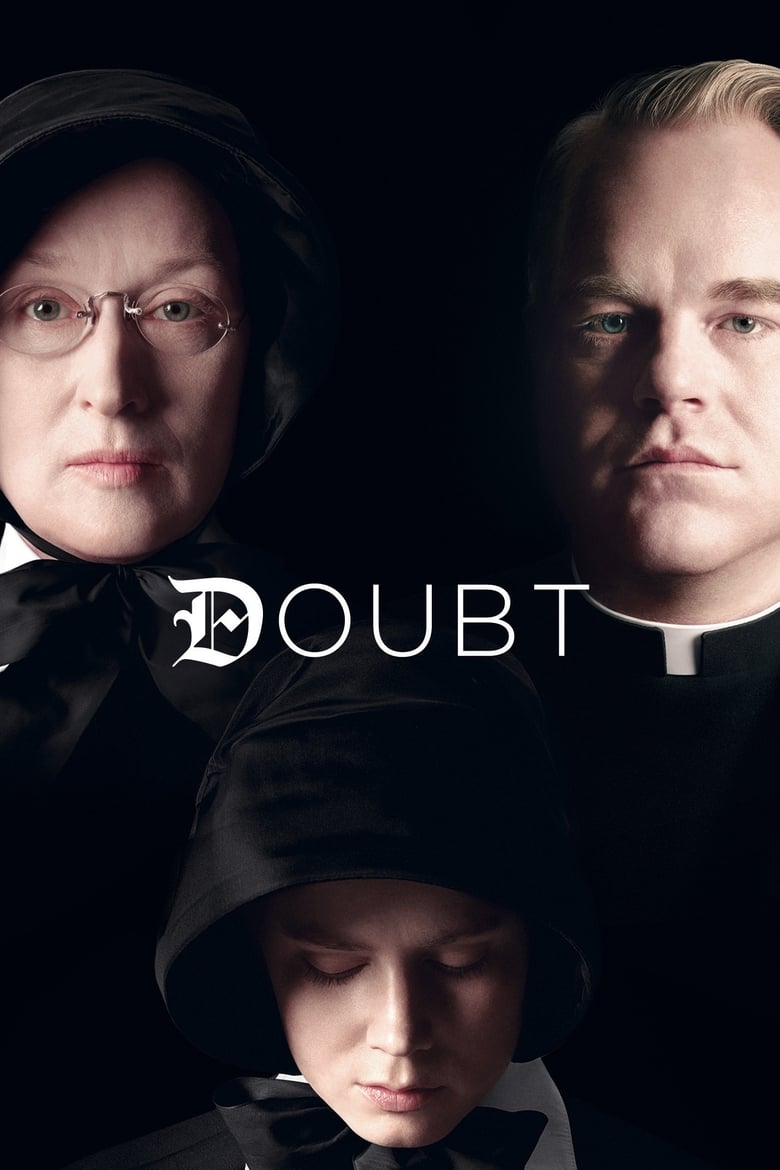
General
Doubt
Overview
In 1964 Bronx, two Catholic school nuns question the new priest's ambiguous relationship with a troubled African-American student.
Best reviews More

"Doubt can be a bond as strong as fear." If ever there was a time in our country's recent history where that line carried the force of relevance, it's now.
And though it's set in the early 1960s (roughly a year after the Kennedy assassination), there's no doubt that John Patrick Shanley's adaptation of his own Pulitzer-Prize winning stage play is a response to these dark times, when the only thing that seems to be uniting Americans is their collective insecurity and ever-weakening belief that things are going to get better.
At the center of "Doubt" is the mystery of whether or not a priest (played by Philip Seymour Hoffman) is guilty of taking advantage of an altar boy. The priest's primary (and really sole) prosecutor is Sister Aloysius, the uber-stern and terrifying principal of the Catholic school that provides "Doubt" its setting. Watching Hoffman and Streep spar is like watching two professional tennis players at their best, and fans of expert movie acting should waste no time in seeing the sparks fly between these two. The movie purposely never clarifies the ambiguity of the charges -- is Hoffman's priest truly guilty of something, or is Sister Aloysius simply on a mad witch hunt? Streep's character is the most fascinating. From one perspective, she's a nearly maniacal harpie, intent on ruining a man's life and career for no clear reason. However, if her accusations are legitimate, she's a sort of hero, demanding justice from a male-dominated world that's willing to look the other way. Streep's performance is something fascinating to behold -- she can convey more with an arched eyebrow than another actor can with his entire face.
Amy Adams gets the pivotal role of a young, innocent nun who first brings her suspicions about the priest to her superior, and then sees them become Frankenstein's monster. In many ways, Adams' character is us, the audience, placed in the position of having to come to a conclusion on our own when empirical evidence is lacking. Adams' role is the least showy, but she does much with it.
And then there's Viola Davis, who, in five minutes of screen time, decimates the audience with some shocking conclusions of her own as the altar boy's mother. The insulated, hushed world of the Catholic Church is blown wide open by this struggling mother, who's seen more of the world than any of the priests and nuns sheltered behind the church's walls, and who puts the film's running themes of racial and gender inequality into harsh perspective.
The central conflict in "Doubt" in many ways comes down to each individual's view of the world and his or her ability to accept the ambiguity of day to day living. There's a lot about the world we will never know and much about our futures we'll never be able to control. So what's better -- anticipating the worst and therefore being prepared when it comes; or believing in the best and running the risk of being disappointed when it fails to arise? The movie just poses this question -- it doesn't try to answer it.
"Doubt" is not a fancy movie and will win no awards for its cinematic audacity. But in looking back at the movies of 2008, I imagine it will stand as one of the best-acted films of the year.
Best video reviews
There are no video reviews for this movie yet.
Have you watched it?
Cast & Crew





